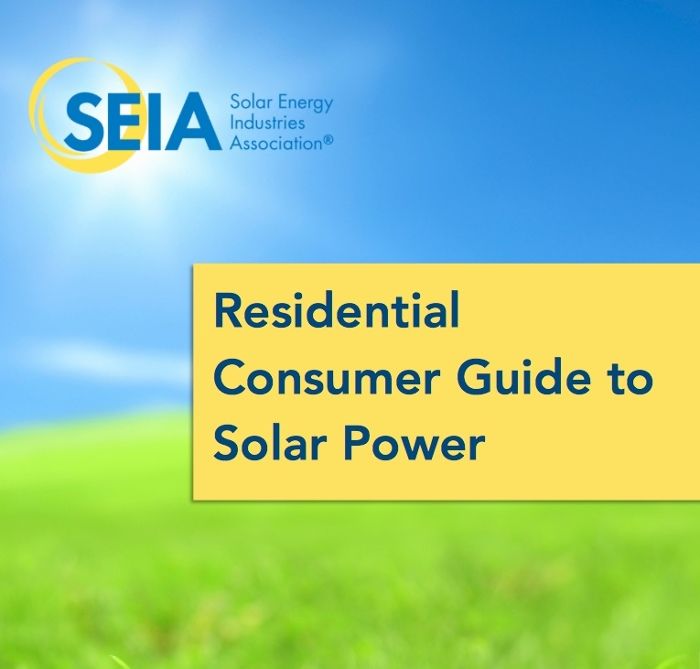
A trade group representing manufacturers, retailers, and installers of photovoltaic (PV) systems has published a short guide for homeowners who want to buy or lease a system.
The Solar Energy Industries Association’s Residential Consumer Guide to Solar Power offers a summary of the three options homeowners have for getting into solar: buying a system outright, leasing a system, or signing a power purchase agreement in which they buy power produced from a system on their property at a set rate.
Publication of the guide comes at a time of heady growth for residential PV in the U.S. Solar electricity still makes up a very small percentage of power consumed in the U.S., but installations are expanding rapidly. Not only are prices for solar panels continuing to fall, making an outright purchase much more attractive than in the past, but homeowners also can reap many of the benefits of solar without upfront payments by leasing a system.
But rapid growth also has brought some problems. Earlier this year, a dozen members of Congress asked two federal agencies to look into complaints that consumers can be hoodwinked by deceptive sales practices. In a letter to the Federal Trade Commission, Republican House members said some solar leasing companies might be overstating savings and understating risks.
In addition, other reports suggest solar leases can complicate and even kill pending real estate sales as buyers balk at existing contract terms.
Know what you’re getting into
The SEIA draws parallels between buying or leasing a solar system and weighing the options for car ownership. Its pamphlet suggests homeowners do their homework before making a decision so they know how much electricity they use, whether the roof on their house is suitable for a solar installation, and how much they can comfortably spend.
It recommends homeowners approach solar energy as they would any other major decision about home ownership–get multiple bids, research the potential installer, and study potential tax consequences and financial incentives.
The pamphlet doesn’t offer much detail beyond a barebones explanation of how a system works, but it does include several links for additional information.
“Consumer protection is an issue of highest priority and is vital to solar’s future growth across America,” SEIA President and CEO Rhone Resch said in a written statement.
Fine Homebuilding Recommended Products
Fine Homebuilding receives a commission for items purchased through links on this site, including Amazon Associates and other affiliate advertising programs.

Affordable IR Camera

Reliable Crimp Connectors

Handy Heat Gun























